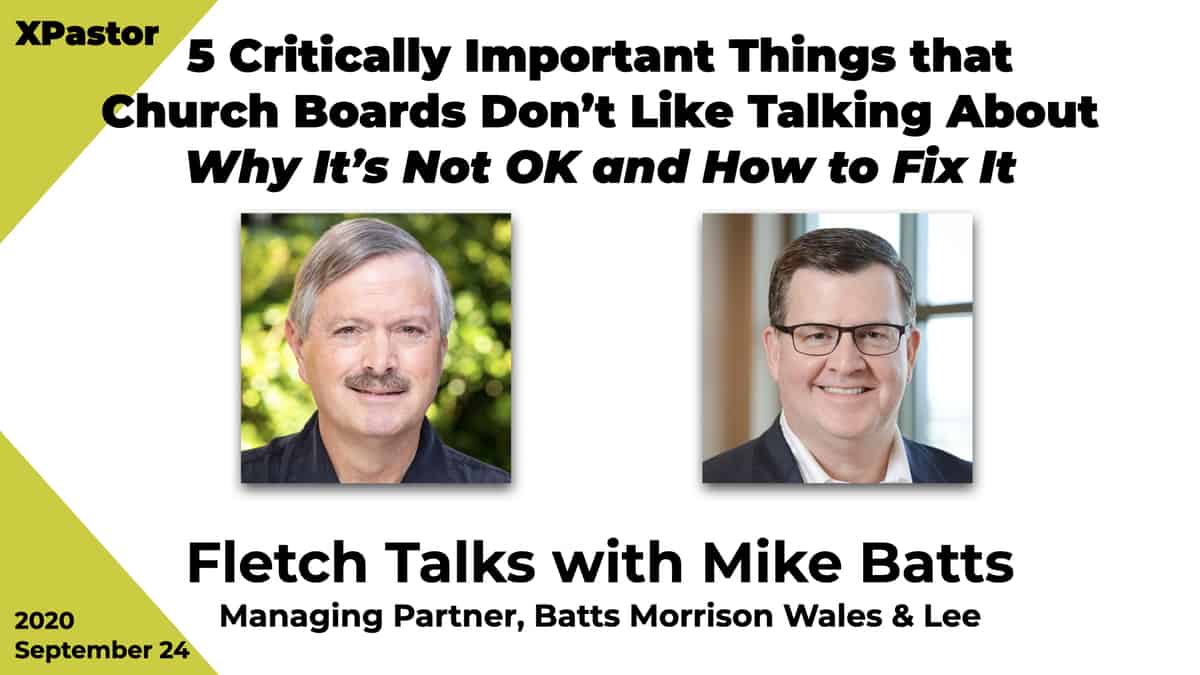Ingleside Baptist Church is not your typical Southern Baptist church … anymore. Ingleside is a large, healthy, growing, and progressive church in Macon, Georgia. Macon is a small-ish town in central Georgia with a population of approximately 95,000. A large, contemporary church in a small town in the deep South is an anomaly. Yet Ingleside has not always been this way.
Like most Southern Baptist churches, Ingleside Baptist Church has had deacons since its inception. However, at this particular Baptist church, the role of deacons has changed dramatically since the day the church began. To best understand the changing role of deacons, a brief look at the history of the church will help.
Ingleside History
The church was conceived on October 4, 1951, as sixteen people gathered in a home to discuss the idea of starting a new church in the growing Ingleside area of town. By the end of the month, 75 people were gathering in the Ingleside Community Clubhouse. By Christmas of that same year, it was official. 203 charter members signed the Charter Member Scroll on December 23, 1951.
For years, even decades, Ingleside Baptist Church was a traditional Baptist church. They were theologically conservative and committed to time-honored Southern Baptist staples: missions, evangelism, Sunday School, age-graded choirs, hymn-sings, and dinner on the grounds. Like all other “good Baptist” churches, Ingleside was officially congregationally governed, and led by a Board of Deacons.
Deacons Then
The prominent leadership capacity that deacons possessed for years at Ingleside is evident in the archives of the church. In the 25th anniversary book chronicling the history of the congregation, just after the photo of the first pastor, and a picture of the first person to sign the church’s charter member scroll, the third is a photograph of the “Original Board of Deacons.”
Further evidence of the significant leadership role of deacons can be found as one thumbs through Minutes of Deacons’ Meetings from days gone by.
The deacons had the authority to reverse decisions by committees of the church.
Al Singley requested that the Brotherhood budget be increased by $440.00 to fund a commitment by the Brotherhood to sponsor one student at the Nazareth school. The Finance Committee had previously disapproved this request. After considerable discussion, this request was approved.
The deacons were the group that sanctioned significant financial expenditures before they were presented to the church for final approval.
Jim also reported that the Finance Committee had recommended that a new copying machine be purchased, at a cost of $3,536. This also was approved and will be presented to the church for approval.
That the Board of Deacons was expected to approve virtually every decision in the church is seen in yet another excerpt from that same meeting.
It was requested that the lights be left on all night in the sanctuary during the Christmas season. This request was approved.
Ingleside was a strong and growing church. In the first thirteen years, the total membership grew steadily to approximately 1,000 members in 1964. For the next fourteen years, the total membership remained at that level. Though the growth had plateaued, Ingleside was one of the largest churches in Macon. With the arrival of Dr. Robert G. Johns in 1979, the church began to grow even more, reaching a membership of approximately 1,500 by the mid-1980’s.
A New Leader Arrives
After some challenging issues and the departure of Dr. Johns in 1988, Ingleside was blessed to have a wise and seasoned shepherd come as Interim Pastor. Dr. E.C. Sheehan, who is still the Pastor Emeritus, came and helped the church heal and even grow some while a search for a new pastor was under way.
The Pastor Search Committee received a résumé with the name Timothy A. McCoy on the top. Tim was a young, dynamic preacher who had recently earned his Ph.D. from Southern Baptist Theological Seminary in Louisville, Kentucky. As he was only thirty-one years old, the Search Committee was hesitant to consider him. Yet after hearing him preach and getting to know him a bit, they recommended him as the next pastor of Ingleside. The church voted and called McCoy to come as soon as possible.
September 4, 1989 marked the arrival of the new pastor who would develop to become a new kind of leader. Tim McCoy earned trust as he preached with excellence and led the church to take steps toward renewed growth. In 1990, he guided the church to begin a second hour of Sunday School. In 1992, the church began a capital fundraising campaign that enabled some needed renovations to existing structures, as well as the construction of a new, three-story Preschool and Children’s Building and Family Life Center that they dedicated in 1994. As significant as these changes were, the church structure, worship style, and many traditions remained in place. Tim continued to gain leadership capital and the Lord blessed the church with steady growth. Church membership topped 2,000 in 1997, with an average attendance in worship of 868.
More Changes
Tim McCoy lives by the maxim that “leaders are readers.” One of the many books that he read in the mid-1990s was Rick Warren’s, The Purpose Driven Church. So began the stirrings of change in his heart that would gradually lead to a transformation of the entire church. Prayerfully, carefully, and steadily, Tim began introducing more changes to a church that had a long history of well-entrenched and much-loved traditions.
Tim invited the staff and key lay leaders, many of whom served on the Board of Deacons, to read The Purpose Driven Church and other books on church growth. He began guiding these leaders, and eventually the entire church, to consider if there might be a better, more balanced, and more biblical way to “do church.” On May 11, 1997, the congregation adopted a series of eight recommendations that laid a significant foundation for future organizational change. Following are three of the most significant adopted recommendations.
The Long Range Planning Ministry Team (LRPMT) recommends that the Church affirms its five foundational, biblical purposes as worship, evangelism, fellowship, discipleship, and ministry. We further recommend that the Church adopt the following statement of purpose: Our purpose is to adore God, bring people to Jesus, call believers to membership, develop members to maturity, and equip them for ministry.
The last sentence of the previous paragraph is Ingleside’s statement of purpose and is stated and restated in the monthly Discovering Ingleside Membership class. By the end of class, every participant can recite the five purposes by memory. Mark Hudgins, the Membership Pastor, enjoys helping the participants learn Ingleside’s purpose statement in a lighthearted manner by verbally quizzing the group, “‘A’ is for … ?” (Adore God!) “‘B’ is for … ?” (Bring people to Jesus!) “‘C’ is for … ?” (Call believers to membership!) “‘D’ is for … ?” (Develop members to maturity!) “‘E’ is for … ?” (Equip them for ministry!) It’s a fun, memorable way to get every new member to grasp the church’s understanding of the five purposes of the church.
The LRPMT recommends that effective September 1, 1997, requirements for new members in our Church include: (1) a personal profession of faith in Jesus Christ as Lord and Savior, (2) baptism by immersion as a believer as a symbol of one’s salvation, and (3) completion of a membership class.
The first two requirements have been in place since the church was founded. The third requirement, completing the monthly Discovering Ingleside Membership class, was a change.
The LRPMT recommends that the Church authorize its leaders (1) to develop a master site development plan which anticipates acquisition of adjacent properties, the construction of additional on-site parking, a new worship center, new fellowship hall, new office space, and the complete renovation of the old education building; (2) to make preparations for another capital fund-raising campaign (anticipated in either September-November 1998 or January-March 1999). As specific recommendations are formulated, they will be presented to the appropriate leadership groups and Church for approval.
The church was growing and was ready to make a concerted effort to examine future site development to accommodate more growth.
About this same time, over 900 adults went through the Experiencing God Bible study by Henry Blackaby. Further, the church also added a third worship service to accommodate the growing number of worshipers who gathered week by week.
Under the pastor’s guidance, the church called a new Music Minister to join the staff in the Fall of 1997. Greg Goforth came ready to lead the church to worship with what some felt to be a more blended style of worship. He facilitated the use of more instruments on the platform than just the pipe organ and piano. The wind of God’s Spirit was moving in the worship services and in many lives.
Change was in the air in this once-traditional church. By the grace of God, McCoy was leading with extreme skill to usher in the changes while helping maintain remarkable unity in the church. To summarize:
- A new pastor, Tim McCoy, came to the church.
- The church added a second hour of Sunday morning Bible study.
- Giving enabled significant renovations and a new building.
- They adopted a purpose-driven strategy.
- Hundreds participated in an in-depth Bible study.
- The church began a third worship service.
- A new Worship Pastor came.
- The worship style became more progressive.
The church was embracing significant changes and was at a tipping point. They trusted their pastor and were ready to consider another change.
The Structural Change
As important and beneficial as the aforementioned changes were, Dr. McCoy sensed the Lord prompting him and the church toward another significant change. Ingleside was still largely influenced by an organizational structure that is typical of most Southern Baptist churches. While everyone in the church certainly believed in the authority of God’s Word, the majority of members held a series of opinions regarding the polity and structure of the church that was influenced more by tradition than by scripture.
The church membership believed strongly that the church was to be congregationally governed. With that understanding, the entire church voted on everything one would expect, such as the annual budget, who would serve on the deacon board, etc. The entire church also voted on virtually everything one might not typically expect, such as who would serve as Sunday School teachers and on committees, non-budgeted expenditures, landscaping features, and other items of minutia. While such a view of polity does not directly violate any biblical instruction, it could oftentimes be practically disruptive. Voting on every major and most every minor issue tends to divide a people, rather than bring them together.
Further, the Board of Deacons was expected to lead the church alongside the pastor and staff. Thankfully, most, if not all of the deacons at Ingleside were well-intentioned and godly men. Unfortunately, however, this balance of leadership was not clearly defined. Decision making was often driven by the weight of the matter at hand and who made the strongest argument in favor, or in opposition, of the issue. The traditional structure failed to adequately delineate who should lead through the decision making process. Further, this administrative and leadership role for deacons at Ingleside is an obvious example of a structure influenced more by church tradition than a biblically informed hermeneutic.
Through biblical teaching and rounds of Sunday evening town-hall-type discussions he called “Truth or Traditions,” Tim McCoy deftly guided the church to understand how some of the church practices were inefficient, ineffective, and non-biblical. By the summer of 1998, Ingleside was ready to take on an entirely different organizational structure than had guided them the previous forty-seven years.
The church’s Discovering Ingleside Membership class notebook summarizes the structure the church adopted.
Our Structure
On Sunday morning, July 26, 1998, our church family adopted a new Constitution and Bylaws.
The reason for the development and adoption of these new governing documents was to streamline our organizational and governance structures to achieve optimum flexibility and effectiveness in ministry while maintaining appropriate levels of accountability …
A Simple Structure
1. We are congregationally governed.
“This proposal pleased the whole group.” (Acts 6:5a; cf. Matt. 18:15-17; Acts 15:4, 12, 22; 1 Cor. 5:4-5)
The Constitution says: “Under the Lordship of Jesus Christ, the membership retains unto itself the exclusive right of self-government of the Church” (Article IV).
What we vote on at Ingleside:
- Changes in the Constitution or Bylaws
- Annual Church budget
- Election of overseers and deacons
- Call/dismissal of the Senior Pastor
- Acquisition of land, construction of new buildings, borrowing of funds, sale of real property.
While Ingleside is still congregationally governed, the church no longer votes on the purchase of a copy machine! They only vote on these five items. The budget and election of overseers and deacons are decided annually; the other three will occur only if circumstances require them to do so.
2. The church is led by the Senior Pastor and the pastoral staff.
“The elders who direct the affairs of the church well are worthy of double honor, especially those whose work is preaching and teaching.” (1 Tim. 5:17)
The Bylaws say: “The Senior Pastor is called by the Church to lead the Church to understand, embrace, and accomplish its mission as defined by the primary biblical purposes of worship, evangelism, fellowship, discipleship, and ministry. The Senior Pastor leads the Church through his primary biblical roles of overseer, evangelist, shepherd, preacher/teacher, and equipper.” Further, “The Senior Pastor shall be the Chief Executive Officer of the corporation.”
At Ingleside, all members of the church staff “shall be selected by, are accountable to, and serve at the pleasure of the Senior Pastor.”
This is a new model for understanding ministry and leadership. The leadership responsibility of the Senior Pastor is now clearly defined. The church and staff all understand the responsibility of the Senior Pastor and the accountability the staff has to him.
3. The Senior Pastor is accountable to the Overseers.
The Bylaws state: “The principal responsibilities of the Board of Overseers shall be to provide accountability for the Senior Pastor, to ensure the financial integrity of the Church, and to set policies on behalf of the Church.”
Not only is the Senior Pastor’s authority defined, but his accountability is as well. Further, the key functions of the Board of Overseers are clear.
Deacons Now
The fourth item on the structure of the church defines the new role of deacons at Ingleside.
4. Deacons are servants, not administrators. They serve the body in the following areas:
- Preparation and serving of the Lord’s Supper.
- Instructing and assisting candidates for Believer’s Baptism.
- Ministering to those with material and financial needs by administering the benevolence funds of the Church.
- Providing support for new or existing ministries as requested by the pastoral staff and consistent with their giftedness and calling to ministry.
“Paul and Timothy, servants of Christ Jesus, to all the saints in Christ Jesus at Philippi, together with the overseers and deacons” (Phil. 1:1).
The role of deacon took on a significantly different look than it had for the first forty-plus years.
5. Every member is a minister.
- The pastors are the equippers.
- The members are the ministers.
“And He gave some … as pastors and teachers, for the equipping of the saints for the work of service, to the building up of the body of Christ” (Eph. 4:11-12).
“Each one should use whatever gift he has received to serve others, faithfully administering God’s grace in its various forms” (1 Pet. 4:10).
This part of the structure highlighted the biblical function of pastors as equippers of believers for the work of ministry. Further, new members understand that they have the privilege and responsibility to be involved in the ministry of the church.
One of the most significant changes in the structure is the description of the role of deacons at Ingleside. The deacons would no longer serve as an administrative or governing board, but would function as a ministry team of the church.
The church Bylaws explain that deacons are now a specific Ministry Team.
Section IV—Ministry Teams
A. General
Ministry Teams shall be developed by the pastoral and program staff to more effectively mobilize members for ministry. The pastoral and program staff will have primary responsibility for identifying, recruiting, equipping, deploying, and leading all members to be in ministry (cf. Eph 4:11-13). The teams shall function in accordance with the Ministry Team Policies and Procedures …
D. Deacon Ministry Team
The Deacon Ministry Team shall be composed of persons who are exemplary in their conduct, discreet in judgment, of honest report, full of faith, and conscious that they shall set worthy examples of cooperation, love, and loyalty for all members of the Church, abiding by the principles set forth in Acts 6 and 1 Timothy 3. They shall promote peace, harmony, and a spirit of unity and cooperation among the membership.
The structural changes brought about a dramatically different role for deacons than the church had known for decades. While the outlined responsibilities were different than in previous generations, the new structure seemed to set the stage for deacons to have a significant and meaningful serving role in the life of the church.
Deacons in the Future
The Lord has continued to bless the ministry of Ingleside. Ingleside is a very unified and healthy church. The number of worshipers in the weekend “crowd” service and the number of members in the “congregation” continue to grow. The average attendance this past church year (which ended September 30, 2006) was over 1,700 worshipers. The church membership now exceeds 3,000.
The structural changes have proven to be very effective, allowing ministry, mission, and decision-making to proceed unhindered. Ministry teams continue to flourish and serve with effectiveness and fervor.
The enthusiasm over what God has done, and is doing, permeates the entire congregation. Anticipation for what the Lord will continue to do at Ingleside is high. Tim McCoy is a gifted leader who engenders that sense of expectancy and enthusiasm. He continues to inspire the staff and church to “next level” living and leading. As Tim McCoy often states, “The best is yet to come!”
An important question is, “Does this ‘best-is-yet-to-come’ outlook apply to deacon ministry?” Mark Hudgins, the Membership Pastor at Ingleside, oversees the Deacon Ministry Team and its ministries. As he looks at the deacon ministry of the church, he senses that the ministry of deacons is far from what God would have this role be.
Deacons, who once served in a very visible and significant role at Ingleside, now serve as a ministry team on which few routinely serve. There are seventy-two deacons on the Deacon Ministry Team, but only a handful routinely serve in the areas of assigned responsibility:
Beyond the opportunity for all deacons to serve the Lord’s Supper once or twice a year,
- Two deacons typically prepare for the serving of communion;
- Two deacons serve to instruct and assist candidates for Believer’sBaptism;
- One deacon ministers to those with material and financial needs by administering the benevolence funds of the Church; and
Only seven percent of the deacons customarily serve as a function of their role as a deacon! Hudgins is convinced that the Lord would have the office of deacon mean so much more than that!
So how will Ingleside address this vacuum of responsibility entrusted to deacons? Will Hudgins and others on the Deacon Ministry Team find new ways for deacons to serve to address needs in the church family? Will the church find another way to add value to the role of deacon? Or will the church rewrite their Bylaws so that every ministry is considered a serving (deacon) role and, thus, allow the ministry of “deacons” to fade into the sunset?
View the charts in the original PDF: Ingleside Baptist Deacons











